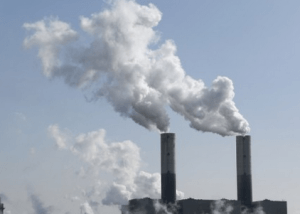Ghana to contribute to emission reduction and adaptation
 Ghana’s Intended Nationally Determined Contributions (INDCs) would not only ensure technical options but seek to develop emission reduction and adaptation options that are technically sound, economically feasible and politically acceptable.
Ghana’s Intended Nationally Determined Contributions (INDCs) would not only ensure technical options but seek to develop emission reduction and adaptation options that are technically sound, economically feasible and politically acceptable.
The necessary technical and analytical work is almost completed and a Ghana contribution option paper has been submitted for consultation and onward submission to Cabinet for consideration and approval before submission to United Nation’s Framework Convention on Climate Change (UNFCC).
Mr Peter Justice Derry, Deputy Director in charge of Climate Change, Ministry of Environment, Science, Technology and Innovation said this at a day’s National Forum on INDCs in Accra.
The forum, organised by the Ghana Climate Change Coalition in collaboration with the Pan African Climate Justice Alliance and Abantu for Development formed part of efforts in enhancing civil society’s action in the climate change discourse and the INDCs in Ghana.
The preparation of INDCs is a follow-up from the Conference of Parties (COP) 19 decision which mandates all parties to the United Nations Framework Convention on Climate Change to make preparations towards COP 21 as part of their commitment to addressing climate change and its impacts.
An INDC is a government’s proposed ‘contribution’ to the United Nations as to what it would do about climate change. It is both a political and technical task because the information included in governments’ INDCs will serve as building blocks of the Paris climate agreement.
Countries that fail to submit their INDCs would miss out of the synthesis report and the seriousness of the country in the negotiation process would be questioned.
Ghana’s INDCs are focused on both mitigation and adaptation, whilst the basis of implementation is based on conditional – what the country can do with external support and unconditional – what the country can do without external support.
Mr Dery said Ghana would be able to meet the deadline by the end of September 2015, after the series of stakeholders meetings but expressed financial constraints in accessing technical assistance, which delayed the text preparation because Ghana resisted attempts by development partners to engage external consultants in preparing the INDCs.
He said Ghana was however excited that the country is utilising internal capacity to prepare home-grown INDCs.
“We are not going to give our watches to anybody to look at it and tell us our time,” stated Mr. Derry. We have a Made-In-Ghana INDCs and not an INDC that has been superimposed on us; therefore, the INDCs that are being prepared are prepared by Ghanaians, for Ghanaians and would be implemented by Ghanaians”
Seven African countries have so far submitted their INDCs namely Gabon, Morocco, Ethiopia, Kenya, Benin, Djibouti and Democratic Republic of Congo.
Ms Patience Damptey, a member of the African Group of Negotiators and Convener of Gender Action on Climate Change for Equality and Sustainability, explained that actions to be undertaken in Ghana’s INDCs from 2020 to 2030 would be on four strategic areas – agriculture and food security; climate resilient strategic infrastructure; equitable social development; and sustainable natural resource management.
Dr Rose Mensah-Kutin of Abantu who chaired the function, expressed concern about the timeline and the input made so far, adding: “I think the timelines are too tight but we are hopeful we have to be able to submit.”
She noted that the role of civil society organisations could not be under-played and called for greater input from them to ensure concrete change for the benefit of the citizenry
Source: GNA
